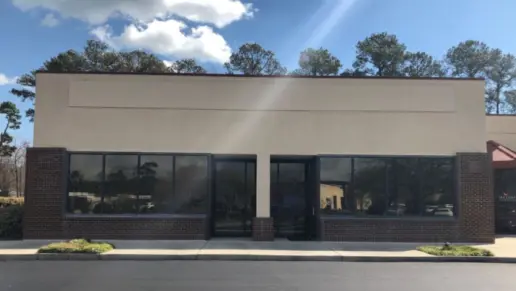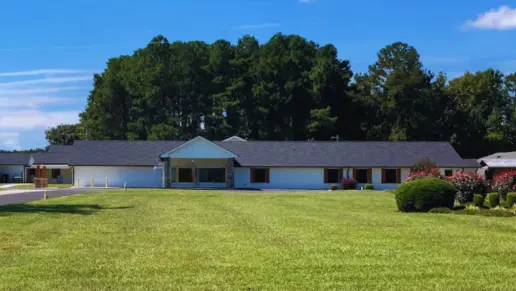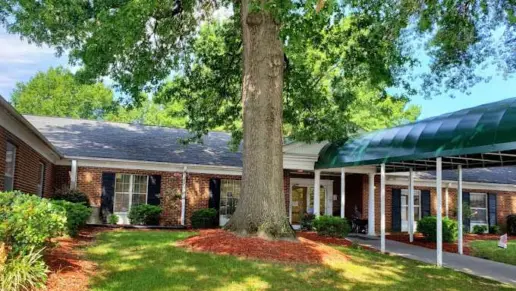They don't care about the patients only about the money! They lock you out if you're late to the program. And the food is absolutely horrible!!!
About McLeod Addictive Disease Center
McLeod Addictive Disease Center was founded in 1969 and is located in Charlotte, North Carolina. This addiction treatment center believes that those suffering from substance abuse disorder should be treated with respect and dignity. That’s why this drug rehab center offers treatment, intervention, education, and support for those battling drug and alcohol addiction.
The McLeod Addictive Disease Center offers a variety of substance abuse treatment services to men and women seeking recovery. This rehab center primarily focuses on MAT, IOP, and inpatient residential treatment programs. To learn more about them, look below:
The medication assisted treatment (MAT) program offered by the McLeod Addictive Disease Center uses FDA approved medications like buprenorphine and Methadone to help those with drug or alcohol addictive disorders.
The MAT at this addiction treatment center is offered in conjunction with counseling and behavioral therapies to ensure a clinically riven evidence based approach to recovery.
Those receiving MAT can expect to be enrolled in this program for a minimum of a year to achieve stability and a better chance at sobriety.
At the McLeod Addictive Disease Center, clients can enroll in an outpatient program (OP) or an intensive outpatient program (IOP), with the former being a short term treatment option and the latter a long-term treatment choice.
Those enrolled in these programs will receive therapeutic group counseling, referrals to community resources like 12 step groups, NA and AA groups, individual treatment planning, addictive disease education, and individual therapy sessions.
With more than 40 years of experience in treating drug and alcohol abuse, the inpatient residential treatment program at the McLeod Addictive Disease Center is equipped with the tools to help individuals with recovery.
This program delivers a full continuum of personalized holistic care. Those enrolled in this program can expect to stay for up to 28 days, but this can be custom tailored to suit the recovery needs of the individuals.
During this addiction treatment center’s program, clients will have access to group and individual counseling, addiction disease education, family counseling, referrals, 24/7 staff assistance, and aftercare.
In addition, this drug rehab center also provides a residential DWI program. This program is a treatment alternative to incarceration for those with substance abuse issues. Usually, clients stay between even and 30 days at this facility.
Rehab Score
Gallery
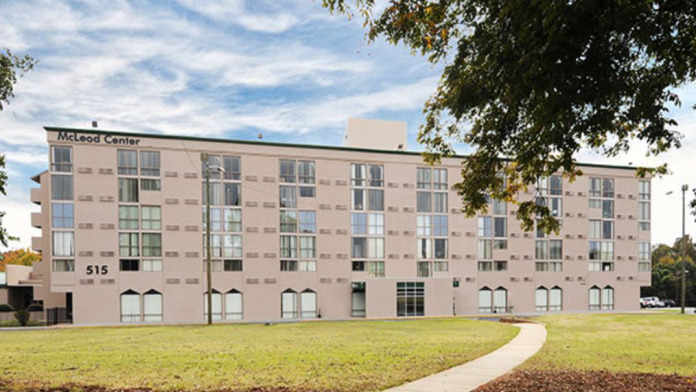
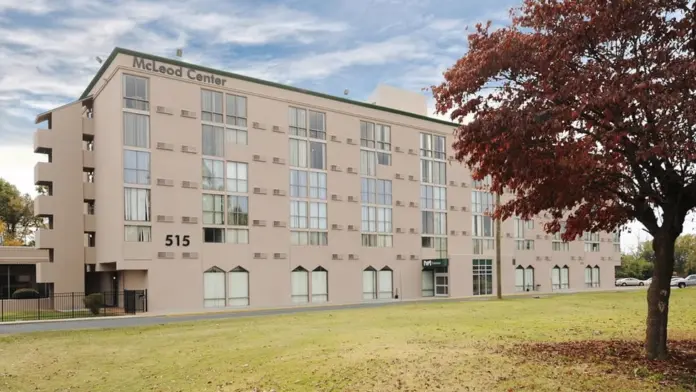
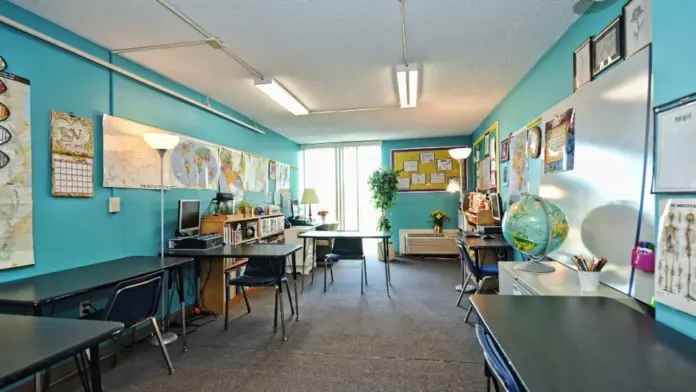
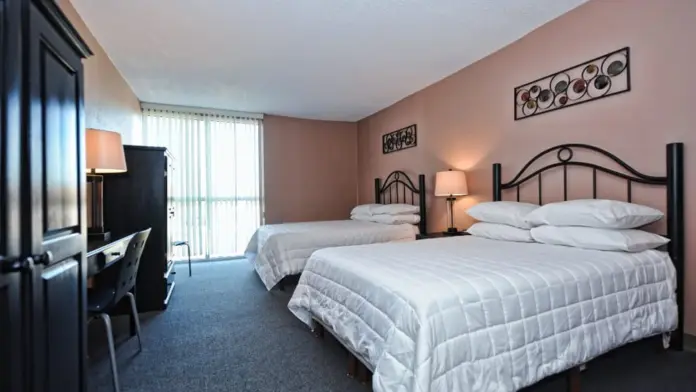
Location
Accepted Insurance
Other Forms of Payment
Medicaid is a state based program that helps lower-income individuals and families pay for healthcare. Medicaid covers addiction treatment so those enrolled can use their coverage to pay for rehab. When a program accepts Medicaid the client often pays very little or nothing out of their own pocket.
Private insurance refers to any kind of healthcare coverage that isn't from the state or federal government. This includes individual and family plans offered by an employer or purchased from the Insurance Marketplace. Every plan will have different requirements and out of pocket costs so be sure to get the full details before you start treatment.
Self-pay involves paying for treatment out of your own pocket. You can use savings or credit, get a personal loan, or receive help from family and friends to fund your treatment. If you don't have insurance or your insurance plan doesn't cover a specific program, self-pay can help ensure you still get the care you need.
Financial aid can take many forms. Centers may have grants or scholarships available to clients who meet eligibility requirements. Programs that receive SAMHSA grants may have financial aid available for those who need treatment as well. Grants and scholarships can help you pai for treatment without having to repay.
Addiction Treatments
Levels of Care
Treatments
The goal of treatment for alcoholism is abstinence. Those with poor social support, poor motivation, or psychiatric disorders tend to relapse within a few years of treatment. For these people, success is measured by longer periods of abstinence, reduced use of alcohol, better health, and improved social functioning. Recovery and Maintenance are usually based on 12 step programs and AA meetings.
There are many types of drug rehab in North Carolina. To receive treatment for addiction, you can choose from many inpatient and outpatient programs. Often, participants start with detox and work through a full continuum of care that continues with ongoing support for long-term recovery.
Opioid rehabs specialize in supporting those recovering from opioid addiction. They treat those suffering from addiction to illegal opioids like heroin, as well as prescription drugs like oxycodone. These centers typically combine both physical as well as mental and emotional support to help stop addiction. Physical support often includes medical detox and subsequent medical support (including medication), and mental support includes in-depth therapy to address the underlying causes of addiction.
Substance rehabs focus on helping individuals recover from substance abuse, including alcohol and drug addiction (both illegal and prescription drugs). They often include the opportunity to engage in both individual as well as group therapy.
Programs


Clinical Services
Cognitive Behavioral Therapy (CBT) is a therapy modality that focuses on the relationship between one's thoughts, feelings, and behaviors. It is used to establish and allow for healthy responses to thoughts and feelings (instead of unhealthy responses, like using drugs or alcohol). CBT has been proven effective for recovering addicts of all kinds, and is used to strengthen a patient's own self-awareness and ability to self-regulate. CBT allows individuals to monitor their own emotional state, become more adept at communicating with others, and manage stress without needing to engage in substance abuse.
Research clearly demonstrates that recovery is far more successful and sustainable when loved ones like family members participate in rehab and substance abuse treatment. Genetic factors may be at play when it comes to drug and alcohol addiction, as well as mental health issues. Family dynamics often play a critical role in addiction triggers, and if properly educated, family members can be a strong source of support when it comes to rehabilitation.
Group therapy is any therapeutic work that happens in a group (not one-on-one). There are a number of different group therapy modalities, including support groups, experiential therapy, psycho-education, and more. Group therapy involves treatment as well as processing interaction between group members.
In individual therapy, a patient meets one-on-one with a trained psychologist or counselor. Therapy is a pivotal part of effective substance abuse treatment, as it often covers root causes of addiction, including challenges faced by the patient in their social, family, and work/school life.
Life skills trainings involve all the skills a person must have in order to function successfully in the world. These include time management, career guidance, money management, and effective communication. Truly successful addiction recovery is based on the ability to not only live substance-free, but to thrive. Life skills teaches the practical necessities of functioning in society, which sets clients up for success in life, and therefore sobriety.
Amenities
-
Private Setting
Accreditations

The Commission on Accreditation of Rehabilitation Facilities (CARF) is a non-profit organization that specifically accredits rehab organizations. Founded in 1966, CARF's, mission is to help service providers like rehab facilities maintain high standards of care.
CARF Accreditation: Yes

The Substance Abuse and Mental Health Services Administration (SAMHSA) is a branch of the U.S. Department of Health and Human Services. Established in 1992 by congress, SAMHSA's mission is to reduce the impact of substance abuse and mental illness on American's communities.
SAMHSA Listed: Yes
Contact Information
515 Clanton Road
Charlotte, NC 28217




